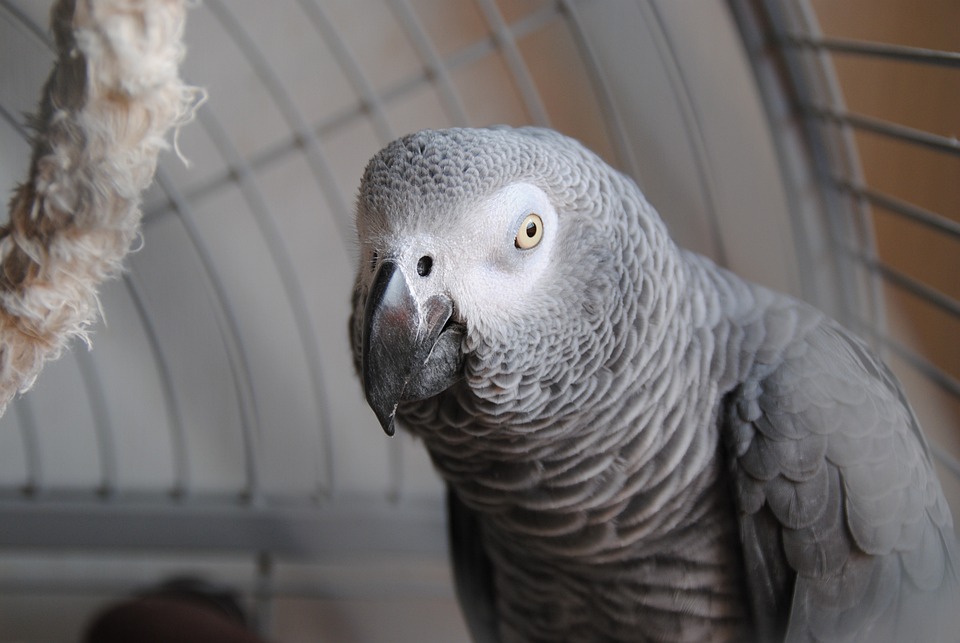**Title: Effective Strategies to Discourage Excessive Screaming During Your Parrot’s Hormonal Period**
**Introduction: Understanding Hormonal Behavior in Parrots**
Parrots, being highly intelligent and social creatures, often undergo hormonal periods where their behavior can become challenging for both themselves and their owners. One common issue that arises during this time is excessive screaming. In this blog post, we will explore various strategies to help discourage excessive screaming in parrots during their hormonal period. By implementing these techniques, you can create a calmer and more enjoyable environment for both you and your feathered friend.
**I. Creating a Hormone-Friendly Environment**
During your parrot’s hormonal period, it is crucial to establish an environment that minimizes triggers and encourages calm behavior. Consider the following steps:
1. **Light Management**: Adjust the lighting in your parrot’s environment to mimic natural daylight cycles, ensuring a consistent 12-hour light and 12-hour dark cycle. This can help regulate hormone production and reduce excessive hormonal behavior.
2. **Cage Placement**: Place your parrot’s cage in a quiet area away from high-traffic zones or external stimuli that may trigger excessive screaming. Providing a sense of security can help minimize stress and hormonal fluctuations.
3. **Hide-and-Seek Toys**: Introduce interactive toys that require problem-solving skills, such as puzzles or foraging toys. These toys can divert your parrot’s attention and engage them mentally, reducing the likelihood of excessive screaming.
**II. Healthy Diet and Nutrition**
A well-balanced diet plays a vital role in managing hormonal behavior in parrots. Consider the following dietary guidelines:
1. **Avoid Excessive Fatty Foods**: Limit your parrot’s intake of fatty foods, as they can contribute to hormonal imbalances. Instead, focus on a diet rich in fresh fruits, vegetables, and high-quality pellets to provide essential nutrients.
2. **Calcium Regulation**: Monitor your parrot’s calcium intake, as excessive calcium can stimulate hormonal behavior. Consult an avian veterinarian to determine the appropriate calcium levels for your parrot’s specific species.
3. **Variable Feeding**: Offer a variety of food textures, sizes, and colors to simulate natural foraging behavior. This can prevent boredom and help manage hormonal fluctuations.
**III. Behavioral Training Techniques**
Consistent and positive reinforcement-based training methods can help redirect your parrot’s behavior and discourage excessive screaming. Consider the following techniques:
1. **Vocalization Redirection**: Teach your parrot alternative behaviors, such as speaking, singing, or mimicking sounds. Reward these acceptable vocalizations to shift their focus away from excessive screaming.
2. **Positive Reinforcement**: Reward desirable behaviors, such as calmness or quietness, with treats, praise, or favorite toys. This encourages your parrot to associate positive outcomes with reduced screaming.
3. **Time-Out Approach**: If your parrot engages in excessive screaming, gently move them to a separate, quiet area for a short period. This mild form of time-out helps them understand that excessive screaming results in a temporary loss of attention.
**FAQs: Common Concerns about Excessive Screaming During Hormonal Periods**
Q1: Is excessive screaming during hormonal periods normal in parrots?
A1: Yes, hormonal behavior, including excessive screaming, is a natural part of a parrot’s reproductive cycle. However, it can be managed through proper care and training techniques.
Q2: Can neutering or spaying a parrot help reduce excessive screaming?
A2: While hormonal behavior can be reduced through neutering or spaying, it is essential to consult an avian veterinarian to determine if this is a suitable option for your parrot’s health and species.
Q3: How long do hormonal periods typically last in parrots?
A3: Hormonal periods can vary depending on the species and individual parrot. They can last anywhere from a few weeks to several months.
Q4: Are there any natural supplements that can help manage excessive hormonal behaviors?
A4: Natural supplements, such as chamomile or passionflower, may help promote relaxation in parrots. However, consult with an avian veterinarian before introducing any supplements to ensure they are safe and appropriate for your parrot.
**Conclusion**
By implementing strategies to discourage excessive screaming during your parrot’s hormonal period, you can help create a more harmonious living environment. Remember to be patient, consistent, and seek guidance from avian professionals when needed. Through a combination of environmental adjustments, proper nutrition, and positive training techniques, you can help your parrot navigate hormonal periods with minimal disruption and maintain a strong bond with your feathered companion.









